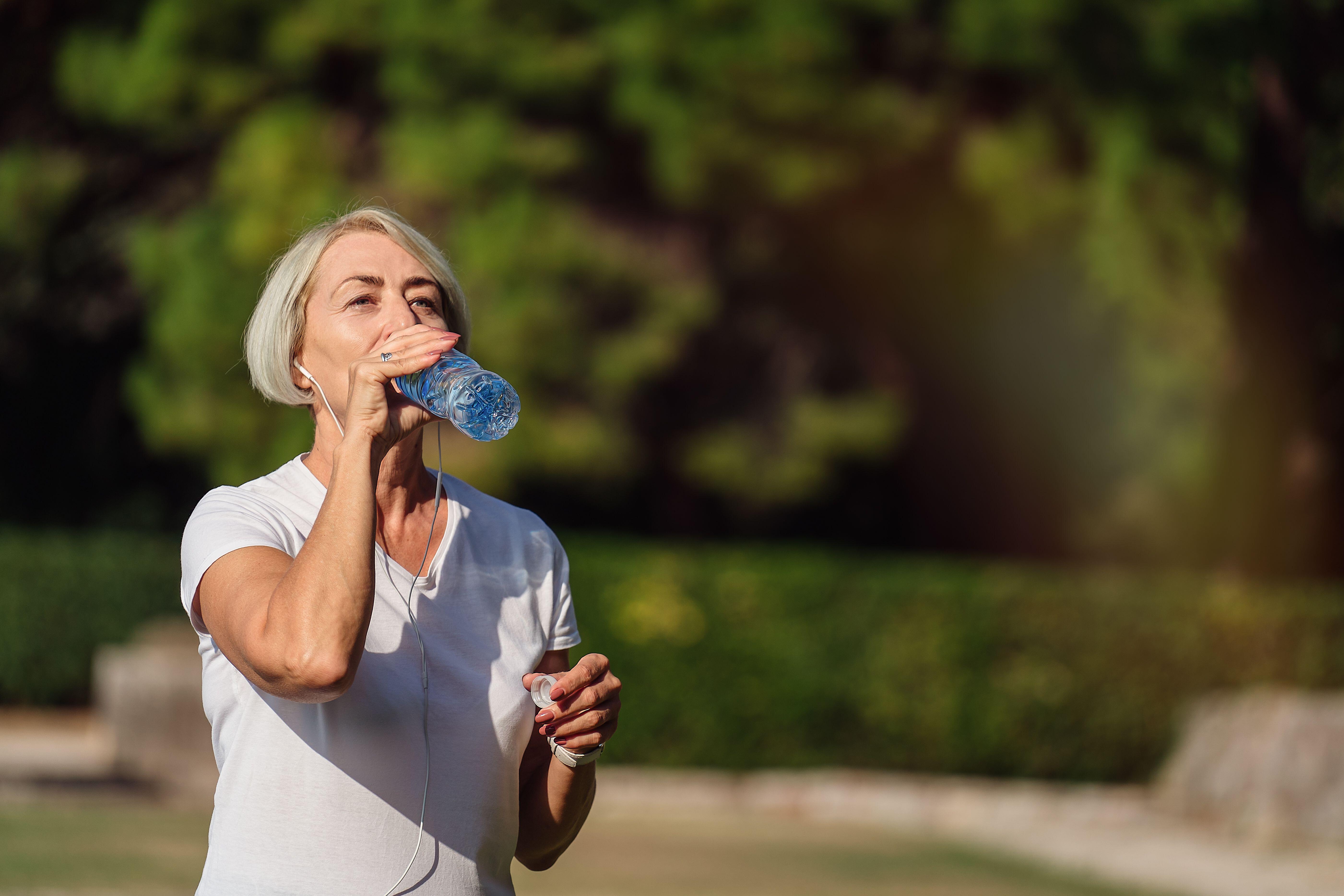People who do not drink enough water have are more stressed, a new study has found.
Researchers found those who habitually drink less water have a stronger biological response to stress.
This is because they release greater levels of the stress hormone cortisol, despite not feeling any thirstier than people who drink more.
Keeping a water bottle nearby during stressful periods could be beneficial for long-term health, researchers suggest.
The study, led by experts at Liverpool John Moores University (LJMU), included 16 people who drank under 1.5 litres of water a day, along with 16 people who regularly met daily recommended guidelines for fluid intake.
Researchers used the European Food Safety Authority (EFSA) guidelines, which recommends men should drink 2.5 litres of water a day while women should drink two litres.
In the UK, the Eatwell Guide suggests adults should drink between six and eight cups of fluid a day, which is roughly 1.5 to two litres.

However, people may need to drink more when it is hot, if they are very active, if they are recovering from an illness, or if they are pregnant or breastfeeding.
Researchers monitored hydration in both groups over seven days using urine and blood samples, after which they were invited into the lab for a stress test.
The test involved an impromptu job interview, for which each individual was given 10 minutes to prepare for.
After that time, they were invited into another room where a fake camera was set up and asked to do the interview to a panel of three people dressed in white coats.
Following the fake interview, individuals were then asked to do a mental arithmetic challenge which involved subtracting numbers as fast as they can.
Professor Neil Walsh, of the LJMU School of Sport and Exercise Sciences, described the test as “really flustering”.
He told the PA news agency: “We know that people who have a low daily fluid intake, who don’t meet the recommendations, are likely to be poorly hydrated.
“But what we didn’t know was whether, when you then stress those people under controlled conditions, they would have a greater stress hormone response.”
Researchers collected saliva samples from the group before and after the stress test to measure cortisol levels.
Cortisol, known as the stress hormone, is produced by the adrenal glands in response to stress and also plays a role in immune response, metabolism and blood pressure.
The team found cortisol levels were higher in those who drank less.

Prof Shaw noted that stress responses such as increased heart rate, sweaty hands and dry mouth were similar between the two groups.
“Both groups felt equally anxious and experienced similar increases in heart rate during the stress test,” he said.
“But the people who were poorly hydrated, because they were not drinking enough water each day, had much greater cortisol responses.”
The low-fluid intake group did also not report feeling more thirsty than those who drank more, according to Prof Walsh.
He added: “Cortisol is the body’s primary stress hormone and exaggerated cortisol reactivity to stress is associated with an increased risk of heart disease, diabetes and depression.
“If you know you have a looming deadline or a speech to make, keeping a water bottle close could be a good habit with potential benefits for your long-term health.”
Prof Walsh said further research is needed to better understand the findings, published in the Journal of Applied Physiology, and to see if increasing water intake in those who do not drink enough can reduce responses to daily “micro stressors” like traffic jams or presentations at work.
“We’d like to think that meeting the water intake guidelines could be one of a number of things you could do to blunt that cortisol response day to day,” he added.
Not drinking enough water causes greater biological response to stress – study
Children whose parents didn’t go to university more likely to develop eating disorder
The surprising trick that could help you tackle your daily chores
Hurricane Erin's massive waves threaten to isolate North Carolina's Outer Banks
The new technology for prosthetic legs that could reduce NHS waiting lists by 50%
9 in 10 shoppers call for healthy food to be more affordable







